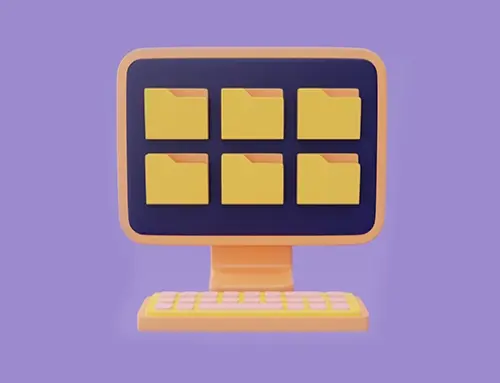Contents
Understanding the Role of a Blockchain Lawyer: Navigating Legal Challenges in the Digital Age
Blockchain, one of the most revolutionary technologies of the 21st century, is transforming industries by introducing a decentralized, secure, and transparent way of handling data. At its core, blockchain is a digital ledger distributed across multiple computers, ensuring that transactions are recorded in an immutable and auditable manner. Unlike traditional systems that rely on a central authority, blockchain fosters a collaborative environment where participants in a network collectively validate and verify transactions, reducing the risk of fraud, data breaches, and tampering.
Initially recognized for powering cryptocurrencies like Bitcoin, blockchain’s potential extends far beyond digital currencies. From enhancing transparency in supply chains to automating contract execution through smart contracts, blockchain is reshaping how businesses operate in finance, healthcare, real estate, and more. Understanding the fundamentals of blockchain is not just useful, it’s essential for grasping its wide-ranging implications in the modern world. This article explores blockchain, its key features, and the transformative impact it is having across various sectors.
What is Blockchain?
Blockchain technology, a reliable and secure method, allows transactions to be recorded across a computer network without a central authority to manage or verify them. Instead of relying on one central system, blockchain uses a network of participants (called nodes) to agree on and validate each transaction. This decentralized approach ensures that the information is transparent and secure and cannot be changed once recorded, making it highly reliable for various applications.
One of blockchain’s key features is its decentralization. Information is not stored in a single location but distributed across multiple network computers, which leads to reducing the risk of tampering, hacking, or system failure, as there is no single point of control or vulnerability. In addition to decentralization, blockchain also offers transparency, ensuring all participants in the network can view the transactions, making the process open and auditable.
Another important characteristic of blockchain is its immutability. Once a transaction is recorded on the blockchain, it cannot be altered or deleted, ensuring the data remains accurate and secure. This feature is precious for industries that require a high degree of trust and verification. Blockchain also leverages cryptographic techniques to secure data, adding a layer of protection to ensure the authenticity of transactions.
While blockchain is widely known as the technology behind cryptocurrencies like Bitcoin, its potential extends beyond digital currencies. It has applications in various sectors, including finance (for secure and transparent transactions), supply chain management (for tracking and verifying product origins), healthcare (for secure patient data management), and legal services (for tamper-resistant contracts), where its ability to provide secure, transparent, and tamper-resistant records is highly valued.
Blockchain law refers to the legal frameworks and regulations governing blockchain technology and its applications, such as cryptocurrencies, smart contracts (which are self-executing contracts with the terms of the agreement directly written into code), and decentralized finance. Blockchain law is an emerging field, and legal systems are adapting to meet the challenges posed by this innovative technology. Understanding the legal framework of blockchain is crucial for businesses looking to implement cryptocurrency solutions while staying compliant with financial regulations.
Applications of Blockchain
Blockchain technology, with its decentralized, transparent, and secure nature, offers a multitude of benefits across various industries. These benefits include enhanced security, increased efficiency, and improved transparency. Here are some key applications:
Cryptocurrencies: Blockchain is the foundation of cryptocurrencies like Bitcoin, Ethereum, and others. It enables peer-to-peer transactions without intermediaries such as banks.
Supply Chain Management: Blockchain, with its transparent and immutable record, plays a crucial role in reducing fraud and increasing efficiency in a product’s journey from the manufacturer to the consumer. This is particularly beneficial in agriculture, food, and pharmaceutical industries.
Smart Contracts: Smart contracts are self-executing agreements with the terms of the agreement written into code. They automatically enforce obligations and are used in industries such as real estate, insurance, and financial services.
Healthcare: Blockchain improves the security and accuracy of medical records. It ensures patient data privacy while allowing authorized healthcare providers to access it for treatment, reducing duplication and fraud in medical claims.
Voting Systems: Blockchain can create a secure and transparent voting system, reducing the potential for fraud and ensuring every vote is counted accurately. This makes it suitable for both government and organizational elections.
Intellectual Property Protection: Blockchain can timestamp digital assets like music, artwork, or writing, providing verifiable proof of ownership. It combats copyright infringement and protects intellectual property.
Banking and Finance: Blockchain disrupts the traditional banking system by reducing the reliance on intermediaries. It enables faster, more secure cross-border payments and facilitates decentralized finance (DeFi), transforming the way we think about lending, borrowing, and trading.

Blockchain technology has the potential to streamline real estate transactions. By recording property titles and legal documents in an immutable ledger, it reduces the time and costs associated with property transactions. This is a development that will surely make professionals and enthusiasts in the real estate industry feel relieved and optimistic.
Energy Trading: Blockchain allows peer-to-peer energy trading where households with solar panels can sell excess energy to their neighbors. It promotes decentralized, sustainable energy systems.
Digital Identity: Blockchain can be used to create secure and easily verifiable digital identities. It is helpful for banking, healthcare, and even voting to confirm identities without risk of data breach.
Blockchain technology is set to transform the legal industry. It can be used for recording contracts, property records, and legal evidence, ensuring that legal documents are tamper-proof and can streamline legal processes through automation. This is a development that will surely enlighten and inform professionals in the legal industry.
Charitable Donations: By recording philanthropic donations on a blockchain, organizations can enhance transparency, ensuring that funds reach their intended recipients. Donors can trace their contributions and reduce the risk of fraud.
Blockchain Lawyer
A blockchain lawyer is a legal professional specializing in the legal aspects of blockchain technology, cryptocurrencies, and decentralized applications. Given the rise of blockchain technology and its widespread use in various sectors, blockchain lawyers play a critical role in ensuring that companies and individuals comply with regulations, protect intellectual property, and mitigate risks. Blockchain lawyers are at the forefront of navigating the complexities of emerging technologies and their interaction with legal frameworks. Their expertise is crucial as the adoption of blockchain continues to grow across industries.
To become a blockchain legal consultant, a law degree (J.D., LLB, or equivalent) is typically required, along with admission to the bar in the relevant jurisdiction. Specializing in technology law, intellectual property, or financial regulations is highly beneficial, as the role often involves advising on legal matters related to emerging technologies. Many professionals also pursue certification courses to deepen their understanding of blockchain fundamentals, smart contracts, decentralized finance (DeFi), and cryptocurrencies.
A strong foundation in contract law and regulatory compliance is essential, as consultants often deal with blockchain-related contracts, such as smart contracts or Initial Coin Offering (ICO) agreements. Familiarity with regulatory frameworks like GDPR or SEC regulations is also important. While not required to code, having a basic understanding of the technical aspects of blockchain systems can be a significant advantage. Additionally, experience in fields like fintech, cybersecurity, or other emerging technologies provides a valuable foundation for a career in blockchain law.
The salary of a blockchain legal consultant varies depending on experience, location, and the type of firm. For entry-level positions, salaries typically range from $70,000 to $100,000 annually. Consultants with three to five years of experience in blockchain law or related fields can expect to earn between $100,000 and $150,000 per year. Senior-level experts, particularly those with deep specialization in blockchain technology and experience in large law firms or tech companies, can earn $150,000 to $300,000 or more annually.
Salaries can vary based on whether a consultant works for a law firm, a consulting agency, or directly for a tech company. As blockchain technology becomes more in-demand, particularly in areas like regulatory compliance and smart contracts, professionals with experience in the field are seeing higher salary ranges.
Also, a blockchain law firm specializes in providing legal services related to blockchain technology, including cryptocurrency regulations, smart contracts, compliance with securities laws, and intellectual property rights for blockchain-based innovations. The law firm blockchain helps clients navigate the complex legal landscape surrounding decentralized technologies and digital assets.
Blockchain Lawyer vs Crypto Attorney
A blockchain lawyer handles the broader legal aspects of blockchain technology, providing guidance on a wide range of issues that extend beyond cryptocurrencies including smart contracts, intellectual property rights related to blockchain innovations, and compliance with data privacy laws like GDPR. Blockchain lawyers also address legal concerns surrounding tokenization, decentralized applications (dApps), and Decentralized Autonomous Organizations (DAOs). Their work spans multiple sectors, such as finance, healthcare, and supply chain, where blockchain is applied.
A crypto lawyer, on the other hand, specializes specifically in the legal aspects of cryptocurrencies like Bitcoin and Ethereum. Their focus is on cryptocurrency regulations, ensuring compliance with anti-money laundering (AML) and know-your-customer (KYC) laws, and addressing tax implications of cryptocurrency transactions. They also handle legal disputes related to cryptocurrency investments, exchanges, and Initial Coin Offerings (ICOs). While both roles deal with blockchain, crypto lawyers concentrate on the financial and regulatory issues unique to digital currencies.
In short, crypto lawyers focus specifically on cryptocurrency-related legal matters, while blockchain lawyers cover the broader legal landscape involving the use of blockchain technology in various sectors.
How Blockchain is Transforming the Legal Industry
Blockchain technology is making a significant impact across various industries, including the legal sector. Its decentralized, secure, and transparent nature offers many benefits that are revolutionizing traditional legal practices. Here’s how blockchain is transforming the legal industry:
Smart Contracts
Blockchain enables the creation of self-executing contracts, known as smart contracts, where the terms are coded into the blockchain itself. These contracts automatically execute when predefined conditions are met, reducing the need for intermediaries like lawyers or notaries, and ensuring fast and transparent enforcement.
Enhanced Security and Data Integrity
Blockchain’s cryptographic features provide robust security, making it difficult for unauthorized parties to alter legal documents or records. By storing data in a decentralized and immutable manner, blockchain ensures that legal records, contracts, and evidence remain tamper-proof.
Efficient Document Management
Legal documents can be recorded on the blockchain, creating a permanent and verifiable audit trail. This helps with authentication, verification, and storage of legal documents such as land titles, intellectual property rights, or court records, improving transparency and reducing disputes over document authenticity.
Cross-Border Transactions
Blockchain simplifies international transactions by allowing secure, fast, and transparent cross-border payments and agreements. Legal agreements involving multiple jurisdictions can be executed using smart contracts, ensuring compliance and minimizing delays caused by traditional banking or legal systems.
Dispute Resolution and Arbitration
Blockchain is creating a foundation for decentralized dispute resolution systems, where disputes can be settled without relying on centralized authorities. Using blockchain for arbitration provides transparency, reduces biases, and ensures that all parties have access to the same immutable information.
Streamlined Intellectual Property (IP) Protection
Blockchain is changing how intellectual property rights are managed. By recording IP ownership and rights on a blockchain, creators can prove ownership, track usage, and receive payments through automated mechanisms, minimizing infringement and piracy issues.
Automated Regulatory Compliance
Blockchain can assist in ensuring regulatory compliance by automating reporting and auditing processes. Smart contracts can be programmed to adhere to legal regulations, triggering compliance checks and making auditing more efficient and less prone to human error.
Tokenization of Legal Assets
Blockchain allows the tokenization of legal assets, such as real estate or corporate shares, enabling fractional ownership and easier transferability. This opens up new avenues for legal transactions and asset management by making assets more liquid and accessible to a broader audience.
Overall, blockchain is transforming the legal industry by increasing efficiency, reducing costs, and improving transparency. While challenges like regulatory acceptance and technological integration remain, the potential benefits are driving more law firms and legal professionals to explore blockchain solutions.
Key Challenges in the Blockchain Industry
Despite its transformative potential, the blockchain industry faces several challenges that hinder its broader adoption and development. These difficulties range from technical issues to regulatory concerns, making the path forward complex for innovators and businesses alike. Below are some of the key challenges in the blockchain industry:
Scalability Issues: One of the primary concerns in blockchain technology is scalability. Blockchains like Bitcoin and Ethereum can process only a limited number of transactions per second, leading to slow processing times and higher fees, especially during periods of high demand. The consensus mechanisms (such as proof-of-work) that ensure security also slow down transaction speeds, making it difficult to scale for global use.
Energy Consumption: Many blockchain networks, particularly those using proof-of-work consensus algorithms, require significant computational power, leading to high energy consumption. Bitcoin mining, for example, has been criticized for its environmental impact, as it consumes more electricity than some countries. This poses a challenge for blockchain to become more sustainable.
Regulatory Uncertainty: The legal and regulatory landscape for blockchain and cryptocurrencies remains unclear in many countries. Governments are still figuring out how to regulate this decentralized technology, leading to uncertainty for businesses and investors. Additionally, inconsistent regulations across borders create barriers to global adoption and legal compliance.
Security and Privacy Concerns: While blockchain technology offers a high level of security, it is not immune to risks. Cyberattacks, such as 51% attacks or vulnerabilities in smart contracts, can compromise blockchain systems. Moreover, while beneficial for accountability, blockchain’s transparency can raise privacy concerns, especially in sensitive financial or personal transactions.
Complexity and Integration Challenges: Blockchain technology is highly complex, making it difficult for businesses and individuals to fully understand and implement. Integrating blockchain into existing systems, especially in industries that rely on traditional infrastructures, requires significant technical expertise and resources. Additionally, legacy systems may not be compatible with decentralized solutions, leading to costly upgrades and potential disruptions.
Interoperability Issues: There are numerous blockchain platforms, each with different protocols and standards, which makes it challenging for them to communicate with each other. This lack of interoperability limits the ability to transfer assets or data between blockchains, slowing down the development of a cohesive blockchain ecosystem.
High Initial Costs: The development and implementation of blockchain solutions can be costly. Building decentralized applications, smart contracts, or private blockchain networks requires substantial investment in technology, infrastructure, and expertise. These high initial costs deter many businesses from exploring blockchain solutions, especially startups and smaller enterprises.
User Adoption and Awareness: Despite its growing popularity, blockchain remains a relatively niche technology. Many people, including businesses and governments, still lack a deep understanding of how it works and its potential benefits. This limited awareness slows user adoption, making it difficult to scale blockchain applications beyond early adopters and tech-savvy industries.
Governance Challenges: Blockchain’s decentralized nature creates challenges in decision-making and governance. Without a central authority, disputes over protocol upgrades or network changes can lead to splits in the community (forks) or stagnation in innovation. Governance models for decentralized networks are still evolving, and many blockchain ecosystems struggle to find a balance between decentralization and efficient decision-making.
Legal and Compliance Risks: Many blockchain projects operate in legal grey areas, particularly regarding cryptocurrencies, Initial Coin Offerings (ICOs), and Decentralized Finance (DeFi). The evolving regulatory environment increases the risk of non-compliance, leading to potential fines, shutdowns, or legal action against blockchain companies.
Trust Issues: While blockchain is designed to be trustless, public perception remains a challenge. High-profile scams, hacks, and regulatory crackdowns in the cryptocurrency space have raised concerns about the safety and legitimacy of blockchain projects. Building trust with users and regulatory bodies is crucial for the broader acceptance of blockchain technologies.
Blockchain has a lot of potential, but for the industry to reach its full potential, several challenges need to be tackled. Efforts are underway to find solutions, such as improving scalability, establishing clear regulations, and enabling different blockchains to communicate with each other. However, for blockchain to become mainstream, overcoming these hurdles will take innovation, teamwork, and clearer rules from regulators.
Conclusion
In conclusion, blockchain technology is rapidly transforming a wide range of industries by offering decentralized, secure, and transparent solutions for handling data and transactions. Its potential to reduce fraud, enhance efficiency, and ensure data integrity is being realized in applications beyond cryptocurrencies, from supply chain management to smart contracts. Despite challenges such as scalability, regulatory uncertainty, and high initial costs, blockchain’s impact continues to grow as more industries explore its benefits. As this technology evolves, understanding its core principles and implications will be critical for harnessing its full potential in the future.
Frequently Asked Questions
Can blockchain technology help the financial sector comply with securities laws?
Yes, blockchain technology can help the financial sector comply with securities laws by providing transparency, automation, and improved efficiency. Key benefits include real-time transaction tracking, automated compliance through smart contracts, and tokenization of securities, which simplifies trading and reporting. Blockchain can also enhance Know Your Customer (KYC) and Anti-Money Laundering (AML) compliance by securely verifying identities and sharing data across institutions. Faster settlement times reduce counterparty risk, and blockchain’s immutable ledger reduces the likelihood of fraud or market manipulation. However, challenges remain, such as regulatory uncertainty, jurisdictional conflicts, and potential conflicts with data privacy laws like GDPR. Despite these hurdles, blockchain offers significant potential to streamline compliance and improve trust in securities markets.
Who is responsible for ensuring a blockchain solution complies with laws & regulations?
Responsibility for blockchain compliance is distributed across developers, users, businesses, legal teams, regulators, and auditors. Collaboration among these parties is essential to ensure that blockchain solutions align with applicable laws and regulations.
How is blockchain technology revolutionizing automation in the legal industry?
Blockchain technology is revolutionizing the legal industry by automating processes like contract execution, compliance, and document management while enhancing security and transparency. Through innovations such as smart contracts, blockchain eliminates intermediaries, reduces errors, and speeds up cross-border transactions. It also simplifies intellectual property management and facilitates quicker dispute resolution with verifiable evidence stored on a secure, immutable ledger. Overall, blockchain is transforming legal workflows, making them more efficient, reliable, and transparent.
Disclaimer: The content provided on this blog is for informational purposes only and does not constitute legal, financial, or professional advice.






